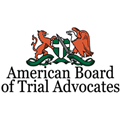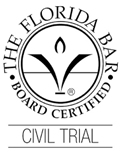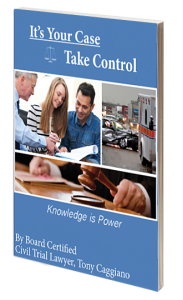Workplace Health and Safety FAQ
What laws protect my right to a safe workplace?
Federal and state laws protect you from an unsafe workplace. The main federal law covering threats to workplace safety is the Occupational Safety and Health Act of 1970 (the “OSH Act” — 29 U.S.C. § 651 and following). The OSH Act gives you a number of rights if you think that something unsafe is happening in your workplace.
Most state laws track the federal law fairly closely. To find out about workplace safety laws in your state, contact your state labor department.
What rights does the OSH Act, implemented by OSHA, give me?
If your workplace poses an imminent threat to your life, the OSH Act gives you the right to refuse to work.
Even if your workplace does not pose imminent danger, however, the OSH Act gives you many important rights. You can benefit from these rights only if you understand and assert them.
The following is just a sample of some of your rights under the Act:
You can get training from your employer on the health and safety standards that your employer must follow.
You can get training from your employer on any dangerous chemicals you are exposed to and on ways you can protect yourself from harm.
You can get training from your employer on any other health and safety hazards (such as construction hazards or bloodborne pathogens) that might exist in your workplace.
You can request information from your employer about OSH Act standards, worker injuries and illnesses, job hazards, and workers’ rights.
You can directly request your employer to cure any hazards or OSH Act violations.
You can file a complaint with the Occupational Safety and Health Administration (OSHA).
You can request that OSHA inspect your workplace.
You can find out the results of an OSHA inspection.
You can file a complaint with OSHA if your employer retaliates against you for asserting your rights under the act.
You can request the federal government to research possible workplace hazards.
For more information on OSHA or to get contact information for your nearest OSHA office, visit the U.S. Department of Labor’s Occupational Safety and Health Administration website, at www.osha.gov.
What steps should I take if I’m injured at work?
If you have been injured at work by a hazard that should be eliminated before it injures someone else, take the following steps as quickly as possible after obtaining the proper medical treatment.
Immediately file a claim for workers’ compensation benefits so that your medical bills will be paid and you will be compensated for your lost wages and injury. In some states, the amount you receive from a workers’ comp claim will be larger if a violation of a state workplace safety law contributed to your injury.
Point out to your employer that a continuing hazard or dangerous condition exists. As with most workplace safety complaints, the odds of getting your employer to resolve the problem will be greater if other employees join in your complaint.
If your employer does not eliminate the hazard promptly, file a complaint with OSHA and any state or local agency that you think may be able to help. For example, if your complaint is about hazardous waste disposal, you may be able to track down a specific local group that has been successful in investigating similar complaints in the past.
If the hazard poses an imminent life threat to you or other workers, you can call OSHA’s emergency telephone line at 800-321-OSHA (6742).
Does OSHA protect against the harmful effects of tobacco smoke in the workplace?
OSHA rules apply to tobacco smoke only in rare and extreme circumstances, such as when contaminants created by a manufacturing process combine with tobacco smoke to create a dangerous workplace air supply that fails OSHA standards. Workplace air quality standards and measurement techniques are so technical that, typically, only OSHA agents or consultants who specialize in environmental testing are able to determine when the air quality falls below allowable limits.







